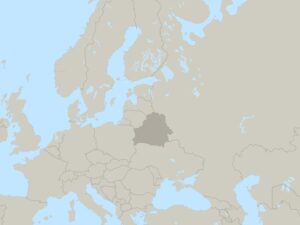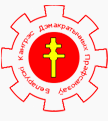Check out the latest preview from @NEDemocracy‘s @JoDemocracy https://t.co/PUcHRI5q7S
— Democracy Digest (@demdigest) September 22, 2020
The revolution in Belarus will be recalled for several features that make it unique, notes Sławomir Sierakowski, a founder of Krytyka Polityczna, a senior fellow at the German Council for Foreign Relations and an eye-witness to the pro-democracy protests.
As I write this on September 3, the day after my return, it is not clear who will win, he writes for The Journal of Democracy: dictator Alyaksandr Lukashenka (b. 1954), or the social movement that opposes him. It seems that Lukashenka, whom the street calls either “the cockroach,” “Sasha 3 percent” (due to the low level of support he enjoys), or “the psychopath” (due to statements by psychiatrists proffering that diagnosis), has regained control of the situation, although his 26-year-old dictatorship has failed to contain mass protests. So that goal has not been achieved. The fight continues.

Credit: HRW
Self-declared Belarusian president Lukashenko is adopting tactics for passing constitutional amendments similar to those that Russian President Vladimir Putin used to pass Russian constitutional amendments in early 2020, adds analyst George Barros. The Lukashenko regime began soliciting constitutional amendment proposals from Belarusian citizens on October 3 with a deadline to submit all proposals by October 25. Lukashenko likely seeks to create the impression among Belarusian citizens that they possess political agency. Lukashenko, however, likely has predetermined which constitutional amendments to adopt, he writes for the Institute for the Study of War (HT:FDD).
If Lukashenka were to leave, Sierakowski adds, Russia could also accept a Belarus that somewhat resembles Armenia—a state that is relatively independent and democratic but which remains generally favorable to Russia and stays out of NATO and the EU. This would create a geopolitical window of opportunity for the opposition at a time when the dictator’s authority is collapsing. Even as democracy struggles with its prolonged political recession on a worldwide scale, it could notch a triumph in a place where one might least expect it to succeed. “History,” as T.S. Eliot writes in his poem Gerontion, “has many cunning passages,” and surely this would be one of them. RTWT

Belarusian Congress of Democratic Trade Unions
Reporting Belarus: The role of professional and citizen journalists in the struggle for freedom. Justice for Journalists Foundation and the Foreign Policy Centre webinar – Monday 19th October, 4pm-5.30pm BST (UK time)
Speakers:
- Natallia Radzina, Editor-in-Chief of Charter 97
- Andrei Sannikov, exiled opposition activist and former political prisoner
- Petras Auštrevičius MEP, Member of the European Parliament Foreign Affairs Committee and Belarus Delegation
- Catherine West MP, Shadow Minster for Europe and the Americas
- Sarah Clarke, Head of Europe and Central Asia, ARTICLE 19

Globsec
This Foreign Policy Centre and Justice for Journalists Foundation event will
- examine the crucial role played by journalists in covering the protest movement in Belarus and the human rights abuses being perpetrated by the Lukashenko Government
- examine the role played by journalists, bloggers and ordinary citizens of Belarus in documenting and sharing the situation on the ground
- highlight the role played by independent media organisations and websites outside Belarus in clarifying and amplifying those messages
- look at how the authorities in Belarus are targeting journalists, citizen journalists and information about the ongoing situation
- discuss what the international community can do to protect journalists and others covering the protest movement and respond to the growing repression in Belarus.
Please RSVP via Eventbrite here or below. Zoom login details will be sent to registered attendees prior to the event.







